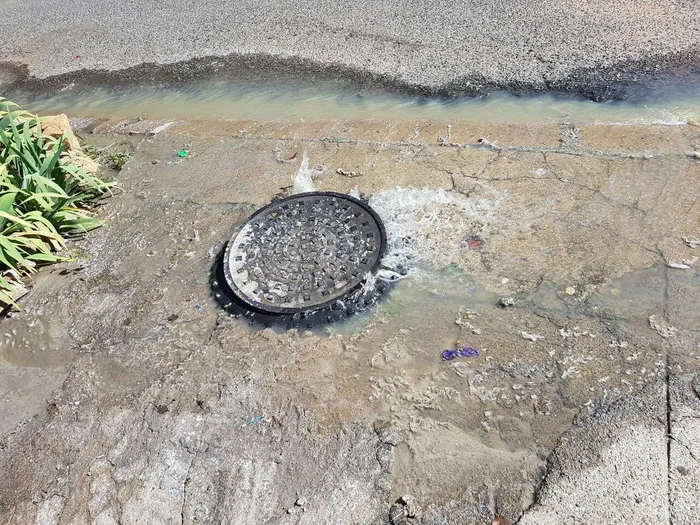
Residents of Windsor West in Johannesburg are plagued by sewage overflowing into streets, despite repeated reports to Joburg Water.
Image: Supplied
Sewer overflows in Windsor West and East in Johannesburg are caused by ageing infrastructure and inadequate systems that cannot handle the area's growing population and urbanisation.
This is according to Johannesburg Water, which has responded to complaints by residents and a local councillor last week regarding constant sewage spills repeatedly reported to the entity.
Nerissa Mema, a frustrated resident, has endured constant foul smell from the ongoing sewage issue since moving to the area in 2018.
She said the sewage starts flowing “like a river” around 6.30am, right after people wake up and start their day at 5.30am.
Ward 98 councillor Beverly Jacobs said she has been pushing Johannesburg Water to upgrade the area's sewer system for over seven years.
She slammed Johannesburg Water for neglecting the community, calling the sewage issue an environmental disaster and a serious health risk for residents.
Johannesburg Water spokesperson Nolwazi Dhlamini acknowledged that Windsor West and East, including parts of Ward 98, have outdated and inadequate sewer systems.
“These systems were not originally designed to accommodate the current population density, and in some cases, have been further stressed by urban densification over time,” she said.
She attributed the ongoing sewer problems to historical underinvestment, rapid population growth, and limited upgrade access due to servitude constraints.
“A long-term upgrade of the network remains a priority and is included in the city's infrastructure investment pipeline, subject to budget availability,” she said.
The Johannesburg Water is aware, she said, of ongoing sewer overflow issues at Windsor West’s Viscount and Alice streets, and Alice and Earls streets, saying the areas frequently experience blockages due to illegal dumping, ageing or damaged pipes, and limited maintenance access.
In response to the complaints, Dhlamini said, Johannesburg Water deployed maintenance teams to clear blockages and performed high-pressure jetting on the affected lines.
They also installed new manholes for better access and engaged engineering teams to assess the sewer infrastructure's condition in the area.
However, Dhlamini said, it was important to note that operational responses alone cannot provide a permanent solution without significant investment in infrastructure replacement and redesign.
Dhlamini said while temporary fixes have been implemented, a long-term infrastructure upgrade is necessary to permanently resolve the problem.
She cited competing citywide infrastructure needs, funding constraints, and land access issues as factors delaying long-term solutions.
She added that Joburg Water is collaborating with City Planning and Development Planning to align development approvals with infrastructure capacities.
rapula.moatshe@inl.co.za